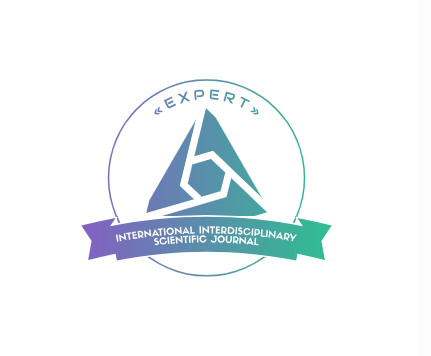International Interdisciplinary Scientific Journal "Expert"
The publisher is the legal entity "ASPECT-PRO" LTD, (BULSTAT Unified Identification Code: 206917762), which conducts its business activities on the territory of the Republic of Bulgaria and is registered in the city of Plovdiv.
Editorial Policies
Editorial Policy Principles
Welcome to the "Editorial Policies" section of the International Interdisciplinary Scientific Journal "Expert". Our commitment to scholarly integrity is the cornerstone of our publication philosophy. This section delineates the ethical standards and procedural guidelines that govern the conduct of all participants in the publication process of our journal. For detailed guidelines on publication ethics, please visit our page.
Scope and Purpose:
These policies serve to ensure the integrity of our interdisciplinary academic exchange and uphold the highest standards of scientific research and publication.
Responsibilities of Authors:
Originality and Plagiarism: Authors are expected to submit original work and appropriately cite content from other sources. Plagiarism in all its forms is unacceptable.
Data Access and Retention: Authors may be asked to provide raw data related to their manuscript for editorial review. Authors are also expected to ensure that their research data is appropriately anonymized (if applicable) and stored securely to protect participant privacy and confidentiality.
Multiple, Redundant, or Concurrent Publication: Authors should not publish the same research in more than one journal as original work.
Acknowledgment of Sources: Proper acknowledgment of the work of others must always be given.
Authorship of the Paper: Authorship should be limited to those who have made a significant contribution to the conception, execution, or interpretation of the reported study. All co-authors must approve the final manuscript before submission.
Conflict of Interest Disclosure: Authors must disclose any financial, personal, or professional relationships that could inappropriately influence (or appear to influence) their research or its interpretation. This information will be reviewed by the editorial team and published in the final article, typically in the "Acknowledgments" section. For more information on author responsibilities, visit our page.
Responsibilities of Editors:
Decision on the Manuscript: Editors are responsible for deciding which of the submitted papers should be published based on the validation of the work in question and its importance to researchers and readers.
Confidentiality: Editors must treat received manuscripts for review as confidential documents.
Disclosure and Conflicts of Interest: Unpublished materials disclosed in a submitted manuscript must not be used by the editor for their own research without explicit written consent from the author. Editors must disclose any potential conflicts of interest and recuse themselves from handling manuscripts where a conflict exists. For more information on editor responsibilities, visit our page.
Responsibilities of Reviewers:
Contribution to Editorial Decisions: Peer review assists the editor in making editorial decisions and, through the editorial communications with the author, may also assist the author in improving the paper.
Confidentiality: Any manuscripts received for review must be treated as confidential documents.
Standards of Objectivity: Reviews should be conducted objectively and observations should be formulated clearly with supporting arguments.
Disclosure of Conflicts of Interest: Reviewers must disclose any potential conflicts of interest, including financial, personal, or professional connections, and recuse themselves from reviewing manuscripts where such conflicts exist. For more information on reviewer responsibilities, visit our page.
Responsibilities of the Publisher:
Handling of Unethical Behavior in Publishing: The publisher, in collaboration with the editorial board, is committed to addressing cases of alleged or proven unethical behavior, including scientific misconduct, fraudulent publication, plagiarism, or inappropriate editorial practices. If such behavior involves the publisher itself, the journal will establish an independent review process to investigate the matter and take corrective actions to ensure transparency and accountability.
Post-Publication Amendments and Retractions: In cases of proven misconduct, errors, or ethical violations affecting the reliability, integrity, or validity of the scientific content, the publisher will work closely with the editorial board to take corrective actions. These actions may include issuing corrections, retractions, or expressions of concern. All such actions are undertaken in accordance with the guidelines of the Committee on Publication Ethics (COPE) to maintain the integrity of the academic record. In exceptional circumstances, an article may be withdrawn from publication for administrative or contractual reasons related to the publishing agreement, including failure to fulfill obligations under the Article Processing Charge policy. Such withdrawal is administrative in nature and does not relate to the scientific content, validity, or integrity of the research. Full details are available in the journal’s Article Withdrawal Policy. For more information on reviewer responsibilities, visit our page.
Access to Journal Content: The publisher ensures the permanent availability and long-term preservation of scholarly research by partnering with reliable digital archiving systems. This commitment safeguards accessibility for future generations of researchers and readers.
Transparency and Open Communication:
The journal encourages scholarly debate and promotes transparency in the research process by enabling open communication and ethical discussion between all involved parties.
By visiting this section, authors, editors, and reviewers agree to abide by these policies, ensuring that Journal continues to serve as a beacon of high-quality, ethical, and influential scholarly publishing.
Complaints and Appeals:
The journal has a clear procedure for handling complaints and appeals from authors, reviewers, and editors concerning the handling of manuscripts or published content. This process ensures transparency and fairness in resolving disputes. For more information on how to file a complaint or appeal, please visit our dedicated page
Scope and Purpose:
These policies serve to ensure the integrity of our interdisciplinary academic exchange and uphold the highest standards of scientific research and publication.
Responsibilities of Authors:
Originality and Plagiarism: Authors are expected to submit original work and appropriately cite content from other sources. Plagiarism in all its forms is unacceptable.
Data Access and Retention: Authors may be asked to provide raw data related to their manuscript for editorial review. Authors are also expected to ensure that their research data is appropriately anonymized (if applicable) and stored securely to protect participant privacy and confidentiality.
Multiple, Redundant, or Concurrent Publication: Authors should not publish the same research in more than one journal as original work.
Acknowledgment of Sources: Proper acknowledgment of the work of others must always be given.
Authorship of the Paper: Authorship should be limited to those who have made a significant contribution to the conception, execution, or interpretation of the reported study. All co-authors must approve the final manuscript before submission.
Conflict of Interest Disclosure: Authors must disclose any financial, personal, or professional relationships that could inappropriately influence (or appear to influence) their research or its interpretation. This information will be reviewed by the editorial team and published in the final article, typically in the "Acknowledgments" section. For more information on author responsibilities, visit our page.
Responsibilities of Editors:
Decision on the Manuscript: Editors are responsible for deciding which of the submitted papers should be published based on the validation of the work in question and its importance to researchers and readers.
Confidentiality: Editors must treat received manuscripts for review as confidential documents.
Disclosure and Conflicts of Interest: Unpublished materials disclosed in a submitted manuscript must not be used by the editor for their own research without explicit written consent from the author. Editors must disclose any potential conflicts of interest and recuse themselves from handling manuscripts where a conflict exists. For more information on editor responsibilities, visit our page.
Responsibilities of Reviewers:
Contribution to Editorial Decisions: Peer review assists the editor in making editorial decisions and, through the editorial communications with the author, may also assist the author in improving the paper.
Confidentiality: Any manuscripts received for review must be treated as confidential documents.
Standards of Objectivity: Reviews should be conducted objectively and observations should be formulated clearly with supporting arguments.
Disclosure of Conflicts of Interest: Reviewers must disclose any potential conflicts of interest, including financial, personal, or professional connections, and recuse themselves from reviewing manuscripts where such conflicts exist. For more information on reviewer responsibilities, visit our page.
Responsibilities of the Publisher:
Handling of Unethical Behavior in Publishing: The publisher, in collaboration with the editorial board, is committed to addressing cases of alleged or proven unethical behavior, including scientific misconduct, fraudulent publication, plagiarism, or inappropriate editorial practices. If such behavior involves the publisher itself, the journal will establish an independent review process to investigate the matter and take corrective actions to ensure transparency and accountability.
Post-Publication Amendments and Retractions: In cases of proven misconduct, errors, or ethical violations affecting the reliability, integrity, or validity of the scientific content, the publisher will work closely with the editorial board to take corrective actions. These actions may include issuing corrections, retractions, or expressions of concern. All such actions are undertaken in accordance with the guidelines of the Committee on Publication Ethics (COPE) to maintain the integrity of the academic record. In exceptional circumstances, an article may be withdrawn from publication for administrative or contractual reasons related to the publishing agreement, including failure to fulfill obligations under the Article Processing Charge policy. Such withdrawal is administrative in nature and does not relate to the scientific content, validity, or integrity of the research. Full details are available in the journal’s Article Withdrawal Policy. For more information on reviewer responsibilities, visit our page.
Access to Journal Content: The publisher ensures the permanent availability and long-term preservation of scholarly research by partnering with reliable digital archiving systems. This commitment safeguards accessibility for future generations of researchers and readers.
Transparency and Open Communication:
The journal encourages scholarly debate and promotes transparency in the research process by enabling open communication and ethical discussion between all involved parties.
By visiting this section, authors, editors, and reviewers agree to abide by these policies, ensuring that Journal continues to serve as a beacon of high-quality, ethical, and influential scholarly publishing.
Complaints and Appeals:
The journal has a clear procedure for handling complaints and appeals from authors, reviewers, and editors concerning the handling of manuscripts or published content. This process ensures transparency and fairness in resolving disputes. For more information on how to file a complaint or appeal, please visit our dedicated page
Have any questions?
Leave your questions in the feedback form.

